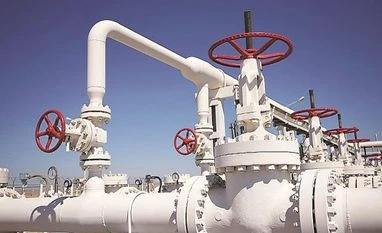Output had crashed by a record 5.8 per cent and 5.2 per cent over the preceding two months as a broad-based decline gripped most sectors. As a result, the core sectors saw nil cumulative growth till November in the current fiscal year (FY20), down from 5.1 per cent in the previous year.
Economists warned that the latest figures indicated that the industrial slowdown would take time to recede. The above 5 per cent contractions had been unprecedented in the index's history, on either the FY12 or FY05 bases of calculating the data. “This is first instance of eight core infrastructure industries production contracting in three consecutive months in FY12 base. Most disappointing has been the contraction of electricity output in four consecutive months, which is a reflection of state of the economy,” said Devendra Pant, chief economist at India Ratings.
The data released by the commerce and industry ministry on Tuesday showed electricity generation shrank by 5.7 per cent in November, with the decline in generation widening from just 0.9 per cent in August to 12.2 per cent in October. Sluggishness in manufacturing is understood to have led to a steep fall in the power demand. According to the data from the Index of Industrial Production (IIP), the contraction in the manufacturing sector has continued unabated, standing at 2.1 per cent in October.
By extension, in November, coal production remained negative for a fifth straight month. But the rate of fall has sharply dropped from 20.5 per cent to 2.5 per cent in the latest month. Contraction in the sector continued to become entrenched since July, when a 24-month growth period ended.
In the energy space, crude oil production continued its downward spiral, having completed a continuous chain of contraction for the past 14 months.
Production reduced by 6 per cent, more than the 5.1 per cent contraction in October. Natural gas extraction continued to fall for an eighth straight month, reducing by a higher margin of 6.4 per cent in November.
The latest data continued to cast uncertainty over infrastructure growth in the country as steel output reduced by 3.7 per cent in its third consecutive month of fall. It had reduced by 1.6 per cent in October, attributed to low performance of large steel consuming industries like auto and capital goods.
On the other hand, cement output returned to the growth charts in November after three months. Cement production rose 4.1 per cent following October’s 7.7 per cent fall, as construction projects picked up after the monsoon season.
This indicates signs of a return to growth, some experts say. “Though disappointing, the November figure has a silver lining in so far as there are certain sectors like cement and refinery products that have registered positive growth. There is, hence, a mixed picture when it comes to non-energy based industries which have performed relatively better,” said Madan Sabnavis, chief economist at CARE Ratings.
Refinery products rose by 3.1 per cent in November, picking up on October's marginal 0.4 per cent growth. While the sector has remained volatile in FY20, senior officials continue to claim that a solid recovery in production is underway as key refining units, which were closed earlier, have gone live.
The engulfing industrial slowdown continued to bypass fertilizer production which rose by 13.6 per cent in November, constituting the highest margin in over a year. This reflects both demand for rabi sowing as well as build up of inventory for the next season, Sabnavis said.
Experts predicted hope for industrial production ahead. “With an improvement in the performance of a number of lead indicators, including the core sector industries, auto production and non-oil merchandise exports, we expect the IIP to report a modest growth in November 2019 after having contracted since September 2019,” Aditi Nayar, principal economist at ICRA, said.
To read the full story, Subscribe Now at just Rs 249 a month
Already a subscriber? Log in
Subscribe To BS Premium
₹249
Renews automatically
₹1699₹1999
Opt for auto renewal and save Rs. 300 Renews automatically
₹1999
What you get on BS Premium?
-
Unlock 30+ premium stories daily hand-picked by our editors, across devices on browser and app.
-
Pick your 5 favourite companies, get a daily email with all news updates on them.
Full access to our intuitive epaper - clip, save, share articles from any device; newspaper archives from 2006.
Preferential invites to Business Standard events.
Curated newsletters on markets, personal finance, policy & politics, start-ups, technology, and more.
Need More Information - write to us at assist@bsmail.in
)